Come join us now, and enjoy playing your beloved music and browse through great scores of every level and styles!
Can’t find the songbook you’re looking for? Please, email us at: sheetmusiclibrarypdf@gmail.com We’d like to help you!
Table of Contents
William Grant Still: Three Visions (Suite for piano solo)
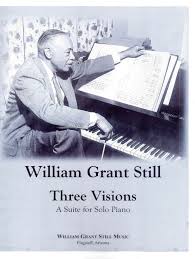
Best Sheet Music download from our Library.
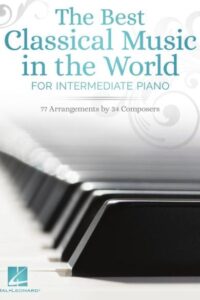
Please, subscribe to our Library.
If you are already a subscriber, please, check our NEW SCORES’ page every month for new sheet music. THANK YOU!
0:00 – Dark Horseman 1:30 – Summerland 6:00 – Radiant pinnacle
Browse in the Library:
Or browse in the categories menus & download the Library Catalog PDF:
William Grant Still
William Grant Still (1895 – 1978) was an American composer, arranger, conductor, and multi-instrumentalist, often called “the Dean of African American composers.” He was the first African American to have a symphony performed by a major orchestra in the United States, the first to conduct a major symphony orchestra, and the first to have an opera produced by a major opera company.

Early Life and Education
- Born on May 11, 1895, in Woodville, Mississippi, and raised in Little Rock, Arkansas.
- His father died when he was an infant, and his mother, a teacher, encouraged his musical interests.
- Studied at Wilberforce University, where he initially pursued medicine but shifted to music.
- Later trained at the Oberlin Conservatory of Music, then studied composition with George Whitefield Chadwick and later with avant-garde composer Edgard Varèse in New York.
Career and Achievements
- Worked as an arranger for popular and jazz bands in New York, including for W. C. Handy and Paul Whiteman.
- Became involved with the Harlem Renaissance, blending African American musical traditions with classical forms.
- His Symphony No. 1 “Afro-American” (1930) was the first symphony by an African American to be performed by a major U.S. orchestra (Rochester Philharmonic, 1931).
- Conducted the Los Angeles Philharmonic at the Hollywood Bowl in 1936, making him the first African American to lead a major orchestra in the U.S.
- His opera Troubled Island (1939, libretto by Langston Hughes and Verna Arvey) was the first by an African American staged by a major company (New York City Opera, 1949).
Musical Style
- Fused classical European traditions with African American idioms: blues, spirituals, jazz, and folk tunes.
- Emphasized lyricism, accessibility, and cultural expression rather than strict modernist abstraction.
- Advocated for a distinctly American classical music rooted in Black cultural traditions.
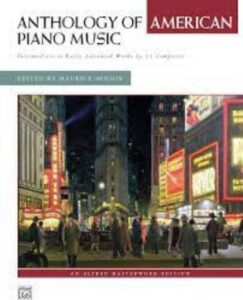
Notable Works
- Symphonies: Afro-American Symphony (No. 1), Song of a New Race (No. 2), The Sunday Symphony (No. 3), Autochthonous Symphony (No. 4), Western Hemisphere Symphony (No. 5).
- Operas: Troubled Island, A Bayou Legend, Highway 1, U.S.A.
- Chamber & Vocal Music: Lyric Quartette, Danzas de Panama, many art songs.
- Also wrote for radio, film, and popular ensembles.
Legacy
- Broke multiple racial barriers in American classical music.
- Opened doors for later generations of African American composers and performers.
- His works are increasingly studied and performed, recognized as cornerstones of 20th-century American music.
- Died in Los Angeles, California, on December 3, 1978.
William Grant Still’s music stands out for celebrating African American heritage within the classical tradition, offering a unique and dignified voice at a time when systemic racism excluded many Black composers from mainstream recognition.
Three Visions (1935) is one of William Grant Still’s most powerful works for solo piano. It is a short suite in three movements, deeply symbolic, written during the Harlem Renaissance period when Still was developing a distinctive African American voice within classical idioms. The suite is often regarded as a spiritual and philosophical statement on the human soul’s journey after death.
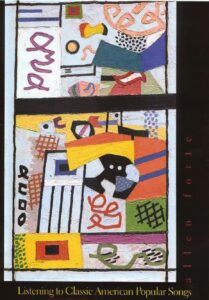
Three Visions (1935) Overview and Musical Analysis
- Title: Three Visions (for solo piano)
- Date: 1935
- Movements:
- Dark Horsemen
- Summerland
- Radiant Pinnacle
- Theme: The cycle represents the progression of the human soul: confrontation with death, passage to spiritual peace, and ultimate ascension.
1. Dark Horsemen
- Character: Turbulent, dissonant, and rhythmically urgent.
- Musical features:
- Rapid ostinati and syncopations drive the texture.
- Dense chords, sharp dynamics, and angular melodies suggest violence and inevitability — the soul’s confrontation with mortality.
- Harmonic language: rooted in tonal centers but heavily chromatic, with influences from early modernism (Still studied with Varèse).
- Strong percussive writing evokes imagery of galloping horses (possibly a reference to the biblical Four Horsemen of the Apocalypse).
Interpretation: This movement symbolizes the struggle and chaos of death, the breaking away of the soul from earthly ties.
2. Summerland
- Character: Gentle, lyrical, and serene — the most frequently performed movement.
- Musical features:
- Lush, hymn-like melody in the middle register, often played with a singing legato.
- Rich Romantic harmonies, influenced by Chopin and Debussy but colored with blues-inflected lines.
- Transparent texture, long sustained chords, and rubato create a meditative atmosphere.
- Tonal stability (often interpreted in D♭ major) provides calmness.
Interpretation: Summerland represents the spiritual paradise the soul reaches after death — peaceful rest and eternal beauty.
This movement is sometimes performed alone as an independent concert piece or even arranged for orchestra.
3. Radiant Pinnacle
- Character: Triumphant, luminous, and ascending.
- Musical features:
- Energetic rhythms, sweeping arpeggios, and brighter harmonies than in the previous movements.
- Builds momentum with a sense of striving upward, often through sequences and rising melodic gestures.
- Tonal clarity, major sonorities, and climactic chords express transcendence.
- Harmonically more consonant than Dark Horsemen, but with modern chromatic coloring.
Interpretation: This final movement depicts the soul’s union with the divine, ascending to its highest state — ultimate illumination.
Stylistic Significance
- Still fuses African American spiritual aesthetics (hymn-like phrasing, blues shadings, and rhythmic vitality) with Romantic piano traditions and 20th-century modernism.
- The three movements form a narrative arc: struggle → peace → transcendence.
- Philosophically, the suite echoes African American religious culture, yet framed in a universal human story of death and renewal.
In short, Three Visions is both a musical poem and a spiritual statement. It demonstrates Still’s ability to merge classical craft with African American cultural expression, creating a deeply humanistic and uplifting work.
Perfect — let’s dive into a harmonic walkthrough of “Summerland” from William Grant Still’s Three Visions. Since this movement is often performed alone and is the most tonal of the suite, it lends itself beautifully to harmonic analysis.
(Note: Exact bar numbers vary depending on the edition, but I’ll give the progression in sections. The piece is most often read in D♭ major.)
“Summerland” — Harmonic Analysis
Opening (mm. 1–4)
- Key: D♭ major
- Chords:
- I (D♭ major) — tonic established gently, hymn-like.
- IV (G♭ major) with added 6th/9th sonorities.
- I again, enriched by suspensions and inner voice motion.
The effect is calm, hymn-like stability. Still avoids strong cadences, instead sustaining a floating atmosphere.
First Phrase (mm. 5–12)
- Melody enters in the middle register, supported by soft chords.
- Progression:
- I → V/vi → vi (B♭ minor) → ii (E♭ minor) → V (A♭ major).
- Resolves back to I (D♭).
This is a classical diatonic motion but with added-color tones (6ths, 9ths), giving a Debussy-like lushness. The move to vi and ii emphasizes a spiritual, tender quality rather than dramatic tension.
Second Phrase (mm. 13–20)
- More chromaticism enters.
- Chords:
- I → ♭VII (C♭ major) → IV (G♭) → ii7 (E♭m7) → V7 (A♭7).
- Resolution: cadences softly back to I.
The use of ♭VII (C♭) is borrowed from folk/blues progressions. It enriches the harmony with a distinctly African American inflection inside an otherwise classical framework.
Climactic Middle Section (mm. 21–32)
- Harmonically more adventurous:
- Alternation between vi (B♭ minor) and IV (G♭ major).
- Sequence through chromatic mediants: I (D♭) → iii (F minor) → V/ii (F7) → ii (E♭ minor).
- Approaches V7 (A♭7) with stronger rhythm and dynamics.
The chromatic mediant shifts (D♭ → Fm → A♭) give the impression of warmth and expansion — the soul ascending in vision.
Return (mm. 33–40)
- Recapitulation of the opening theme.
- Progression largely tonic (I), with embellishments:
- I → IV → ii7 → V7 → I.
- Still decorates the chords with added 9ths and 11ths, keeping the sound lush and modern.
Coda (mm. 41–end)
- Gentle descent, cadencing finally on a pure I (D♭ major).
- Chords sustain with long fermatas, creating timeless stillness.
The coda is essentially a plagal cadence (IV → I), which resonates with the feeling of a hymn or spiritual.
Summary of Harmonic Style in “Summerland”
- Foundation: Firmly tonal, centered in D♭ major.
- Coloration: Use of added 6ths, 9ths, 11ths for lush textures.
- African American inflection:
- Borrowed ♭VII (C♭ major) → I.
- Blues-like coloring of melodic lines (flattened 3rd, 7th inflections).
- Narrative arc: Gentle tonic → chromatic expansion → luminous return.
- Effect: A meditative vision of paradise — serenity, lyricism, timeless rest.
So, harmonically, Summerland balances European Romanticism (Chopin, Debussy) with African American idioms (bluesy modal borrowing, plagal cadences). This is why it feels both “classical” and “soulful.”
| Artist or Composer / Score name | Cover | List of Contents |
|---|---|---|
| The Complete Jazz Guitar Method by Jody Fisher (with audio MP3 audio tracks and Tablature) All Four Volumes |
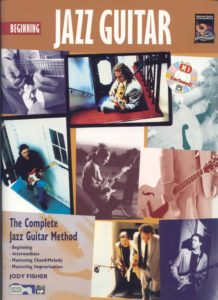 |
Beginning Jazz Guitar and Vol.2 – Intermediate Jazz Guitar and Mastering II Beginning Jazz Guitar The Complete Jazz Guitar Method by Jody Fisher (with audio MP3) and Mastering I Beginning Jazz Guitar The Complete Jazz Guitar Method by Jody Fisher (with audio MP3) |
| The Complete Keyboard Player Book 1 by Kenneth Baker |
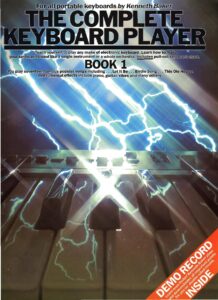 |
|
| The Complete Keyboard Player Book 2 by Kenneth Baker |
 |
|
| The Complete Keyboard Player Book 3 by Kenneth Baker |
 |
|
| The Complete Piano Player Book 1 by Kenneth Baker |
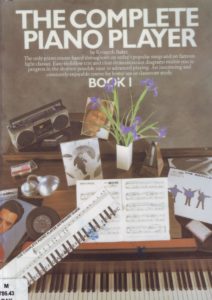 |
The Complete Piano Player Book 1 |
| The Complete Piano Player Book 2 by Kenneth Baker |
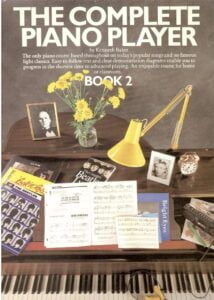 |
|
| The Complete Piano Player Book 4 by Kenneth Baker |
 |
|
| The Complete Piano Player Book 5 by Kenneth Baker |
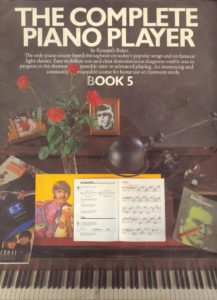 |
The Complete Piano Player Book 5 |
| The Complete Piano Player Easy Blues |
 |
The Complete Piano Player Easy Blues |
| The Complete Piano Player Style Book by Kenneth Baker |
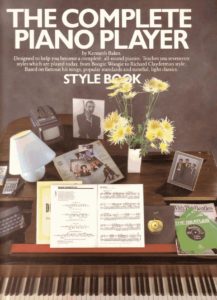 |
The Complete Piano Player Style – Book by Kenneth Baker |
| The Conformist – Main theme (Georges Delerue) | ||
| The Contradictions Of Jazz (Studies In Jazz) by Paul Rinzler (Book) |
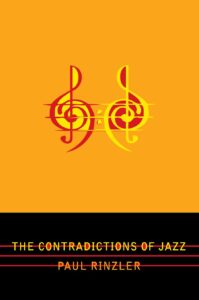 |
|
| The Corrs – Angel | ||
| The Corrs – It’s Easy To Play The Corrs |
 |
The Corrs – It’s Easy To Play The Corrs |
| The Corrs – One Night | ||
| The Corrs – Play Guitar With – MP3 audio tracks embedded in PDF Play Along with Tablature |
 |
Play Guitar With – The Corrs |
| The Corrs – Runaway | ||
| The Cottage on the Beach (Atonement OST) Dario Marianelli | ||
| The Country Music Fake Book |
 |
The Country Music Fake Book |
| The Cranberries Zombie easy piano vocal guitar | The Cranberries Zombie easy piano vocal guitar | |
| The Cure – The Best Of [Guitar Tablature Songbook] |
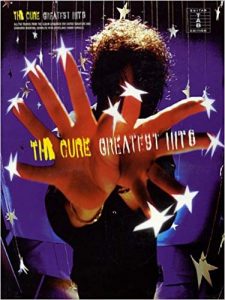 |
The Cure – The Best Of [Guitar Tablature Songbook] |
| The Cure Disintegration(Guitar & Vocal sheet music) with Tablature |
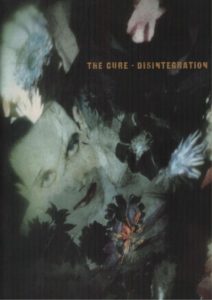 |
The Cure Disintegration Guitar |
| The Curious Case of Benjamin Button – Alexandre Desplat |
 |
The Curious Case of Benjamin Button – Alexandre Desplat |
| The Cycle Of Fifths Essential Exercises For All Jazz Traditional And Contemporary Musicians |
 |
|
| The Danish Girl – Fonnesbech (Alexandre Desplat) | ||
| The Danish Girl (Alexandre Desplat) | ||
| The Day of the Dolphin (Georges Delerue) | ||
| The Definitive Jazz Collection Alto Saxophone With Chords |
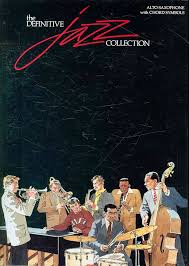 |
The Definitive Jazz Collection Alto Saxophone With Chords |
| The Diatonic Cycle Essential Exercises for All Jazz, Traditional and Contemporary Musicians by Emile De Cosmo Laura De Cosmo |
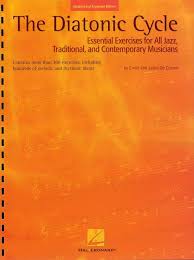 |
|
| The Disappearance Of Hatsune Miku Piano |
 |
|
| The Doors – Hello I Love You | ||
| The Doors – Light My Fire | ||
| The Doors – Riders On The Storm | ||
| The Doors – Rock Score (band songbook) |
 |
|
| The Doors Anthology (Guitar & Tablature) |
 |
The Doors Anthology (Guitar & Tablature) |
| The Doors Anthology Piano Vocal Guitar Chords |
 |
The Doors Anthology Piano Vocal Guitar Chords — 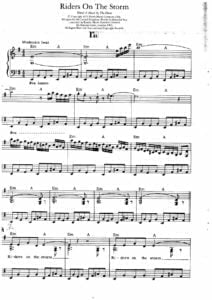 |
| The Doors Easy Piano |
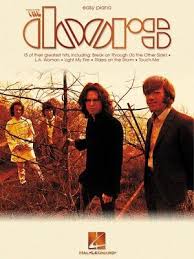 |
The Doors Easy Piano |
| The Doors Guitar Tablature Anthology |
 |
The Doors Guitar Tablature Anthology |
| The Doors The Music Of The Doors |
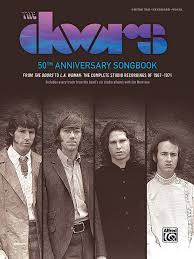 |
The Doors The Music Of The Doors |
| The dream within (Lara Fabian) | ||
| The Drummers Fake Book Easy To Use Drum Charts With Kit Legends And Lyric Cues |
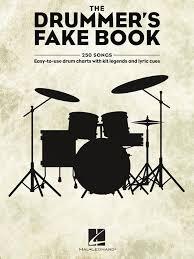 |
The Drummers Fake Book Easy To Use Drum Charts With Kit Legends And Lyric Cues |
| The Easy Gospel Fake Book Melody Lyrics And Simplified Chords |
 |
The Easy Gospel Fake Book Melody Lyrics And Simplified Chords |
| The Easy Sixties Fake Book 100 Songs Of The 60s Melody, Lyrics And Simplified Chords |
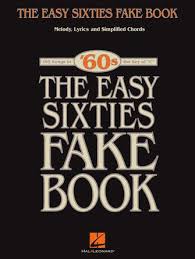 |
The Easy Sixties Fake Book 100 Songs Of The 60s Melody, Lyrics And Simplified Chords |
| The Ecstasy of Gold (Ennio Morricone) | ||
| The Elder Scrolls III Morrowind Title Music |
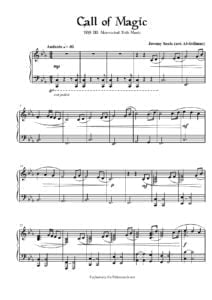 |
|
| The End Of The World – Skeeter Davis |
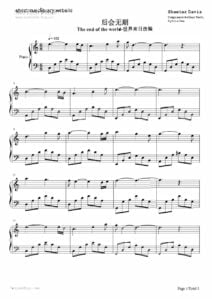 |
|
| The End Of The World – Skeeter Davis (Musescore File).mscz | ||
| The English Patient – Main Theme (Musescore File).mscz | ||
| The English Patient Piano Solo Gabriel Yared |
 |
|
| The Entertainer (Musescore File).mscz | ||
| The European Piano Method Vol. 1 Fritz Emonts |
 |
|
| The European Piano Method Vol. 2 Fritz Emonts |
 |
|
| The Evolution Of Jazz Arranging by Fred Sturm (Book) |
 |
|
| The Evolution Of The Art Of Music Cambridge Librar. (Book) |
 |
|
| The Exciters – Tell Him | ||
| The Exercise Book Guitar Grimoire Series Adam Kadmon Guitar Tablature |
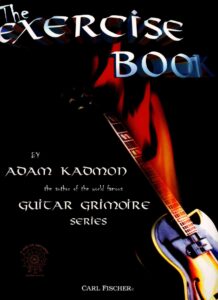 |
|
| The Exorcist Main Theme Piano Solo arr. Robert Miles and Storm Kesocascay | The Exorcist Main Theme Piano Solo arr. Robert Miles and Storm Kesocascay cover | |
| The Fantasticks – Celebration – Tom Jones & Schmidt, Harvey | The Fantasticks. Celebration – Tom Jones & Schmidt, Harvey | |
| The Fault In Our Stars Songbook Sheet Music Piano Vocal Guitar |
 |
The Fault In Our Stars Songbook Sheet Music Piano Vocal Guitar |
| The First Noel – 17th Century English Carol – Easy Piano Arr. With Lyrics (Musescore File).mscz | ||
| The First Principles Of Pianoforte Playing (By Tobias Matthay) (1905) |
 |
|
| The Fountain – Lastman – Clint Mansell | ||
| The Four Seasons – Vivaldi (Musescore File).mscz | ||
| The Four Seasons (Complete) (Musescore File).mscz | ||
| The Fray – How To Save A Life | ||
| The Fray – Scars & Stories Piano Vocal Guitar |
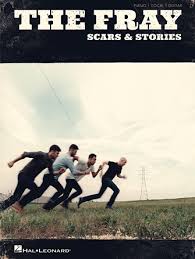 |
The Fray – Scars & Stories Piano Vocal Guitar |
| The Fray How to Save a Life |
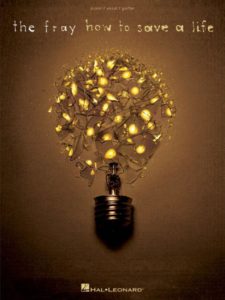 |
The Fray – How to Save a Life Piano Vocal Guitar |
| The Fray Songbook Piano Vocal Guitar |
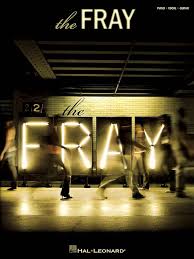 |
The Fray Songbook Piano Vocal Guitar |
| The Free Music Analysis Anthology by Mark Feezell | Book Theory | |
| The Frim Fram sauce by Joe Ricardel and Redd Evans -Jazz Play Along |
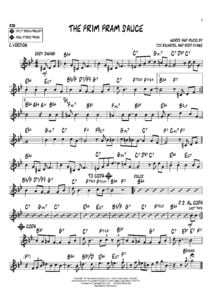 |
The Frim Fram sauce |
| The Fugees Killing Me Softly with his song (Nina Simone) | The Fugees Killing Me Softly | |
| The Full Monty (The Musical) – Piano Conductor Score Book by Terrence McNally Music and Lyrics by David Yazbek |
 |
The Full Monty (The Musical) – Piano Conductor Score |
| The Fusion Guitar Workbook (Deutsch German) with Tablature |
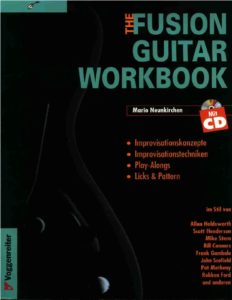 |
|
| The Genius Of Kurt Weill (1938) |
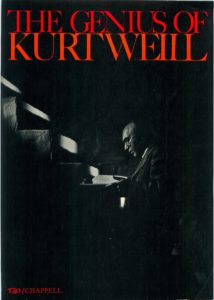 |
The Genius Of Kurt Weill (1938) |
| The Genius Of The Jazz Giants Vol 4 |
 |
The Genius Of The Jazz Giants Vol 4 |
| The Giants Of Jazz Piano |
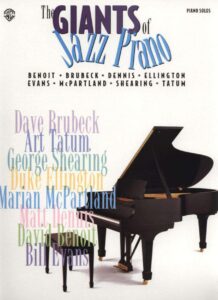 |
The Giants Of Jazz Piano |
| The Gipsy Jazz Guitar Songbook |
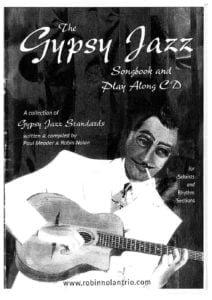 |
The Gipsy Jazz Guitar Songbook |
| The Girl From Ipanema (Antonio Carlos Jobim & Vinícius de Moraes) Jazz Piano Solo arr. sheet music |
 |
|
| The Girl From Ipanema (Guitar Tabs) (Musescore File).mscz | ||
| The Girl with the Sun in her Hair (John Barry) | ||
| The Glorious Ones – I Was Here (Piano vocal) by Lynn Ahrens and music by Stephen Flaherty | The Glorious Ones – I Was Here (Piano vocal) by Lynn Ahrens and music by Stephen Flaherty | |
| The Godfather – Love theme (Nino Rota) | ||
| The Godfather – Main Theme | ||
| The Godfather 2 – End Title (Nino Rota) | ||
| The Godfather Theme (Nino Rota) | ||
| The Godfather Waltz (Musescore File).mscz | ||
| The Godfather Waltz (Nino Rota) | ||
| The Golden Era Of Rock And Roll (Piano, vocal and Guitar Chords) |
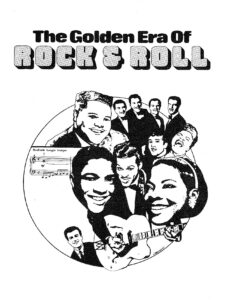 |
The Golden Era Of Rock And Roll (Piano, Vocal And Guitar Chords) |
| The Gravel Road (The Village OST) James Newton Howard | ||
| The Great American Movie Songbook (for organ & keyboard) Very easy |
 |
The Great American Movie Songbook |
| The Great American Songbook The Singers Music And Lyrics For 100 Standards From The Golden Age Of American Song |
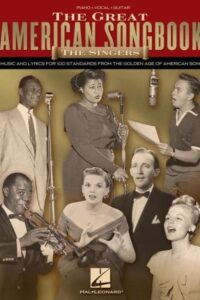 |
The Great American Songbook The Singers Music And Lyrics For 100 Standards From The Golden Age Of American Song |
| The Great Big Book Of Children’s Songs Piano Vocal Guitar Chords |
 |
The Great Big Book Of Children’s Songs Piano Vocal Guitar Chords |
| The Great Composers (By Hezekiah Butterworth) (1884) |
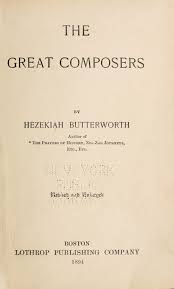 |
|
| The Greatest Love Songs Of The 21st Century |
 |
The Greatest Love Songs Of The 21st Century |
| The Greatest Love Songs Of The 60s |
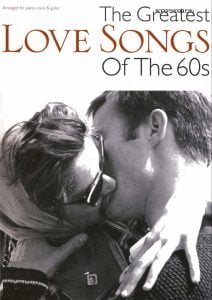 |
The Greatest Love Songs Of The 60s |
| The Greatest Love Songs Of The 70s |
 |
The Greatest Love Songs Of The 70s |
| The Greatest Love Songs Of The 80s |
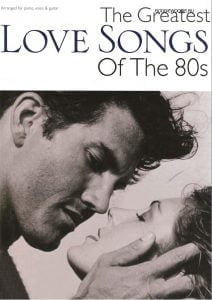 |
The Greatest Love Songs Of The 80s |
| The Greatest Love Songs Of The 90s |
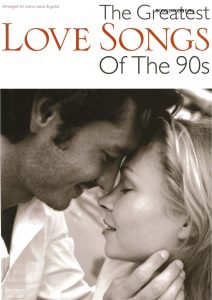 |
The Greatest Love Songs Of The 90s |
| The Greatest Showman Vocal Selections |
 |
The Greatest Showman Vocal Selections |
| The Grinch You’re A Mean One Mr. Grinch (Easy Solo Piano Arr.) By Dr. Seuss And Albert Hague | The Grinch You’re A Mean One Mr. Grinch (Easy Solo Piano Arr.) By Dr. Seuss And Albert Hague | |
| The Grinch You’re A Mean One Mr. Grinch (Jazzy Solo Piano Arr.) By Dr. Seuss And Albert Hague | The Grinch You’re A Mean One Mr. Grinch (Jazzy Solo Piano Arr.) By Dr. Seuss And Albert Hague | |
| The Grinch – You’re A Mean One Mr. Grinch (Easy Solo Piano Arr.) By Dr. Seuss And Albert Hague (Musescore File).mscz | ||
| The Grinch – You’re A Mean One Mr. Grinch (Jazzy Solo Piano Arr.) By Dr. Seuss And Albert Hague (Musescore File).mscz | ||
| The Guitar Works Of Garoto Vol 1 Guitar Scores |
 |
The Guitar Works Of Garoto Vol 1 Guitar Scores |
| The Guitarist’s Scale Book by Peter Fogl with TABs |
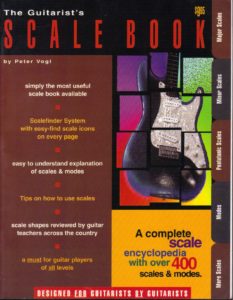 |
|
| The Hanging Tree Sheet Music (From The Hunger Games Mockingjay, Part 1) (James Newton Howard) |
 |
|
| The Harmonious Blacksmith – Gf Händel (Musescore File).mscz | ||
| The Healing – Lady In The Water | The Healing – Lady In The Water | |
| The Hill (Marketa Irglova) | ||
| The History Of Jazz – Book by Ted Gioia (Oxford Un. Press) |
 |
|
| The history of the blues – Koopmans Andy (Book) |
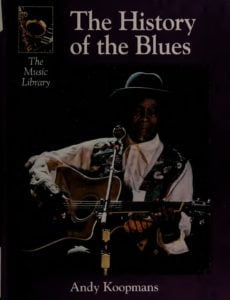 |
|
| The Horse Whisperer Sheet Music – The Vast Continent – Thomas Newman |
 |
|
| The House of the raising Sun – Traditional (Guitarr arr. sheet music) | The House of the raising Sun – Traditional (Guitarr arr. sheet music) | |
| The Hundred Best Short Classics Book 2 Cuthbert Whitemore |
 |
The Hundred Best Short Classics Book 2 Cuthbert Whitemore |
| The Hunger Games – James Newton Howard The Train |
 |
|
| The Immigrant – Love theme (The Godfather OST) Nino Rota | ||
| The Immigrant (The Godfather OST) Nino Rota | ||
| The Imperial March Star Wars Sheet Music For Piano by John Williams |
 |
The Imperial March Star Wars Sheet Music For Piano |
| The Improvisation Of Musical Dialogue A Phenomenology Of Music (Bruce Ellis Benson) Book |
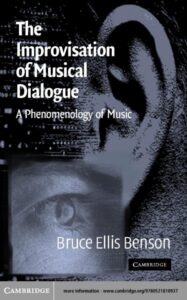 |
|
| The Intermediate Piano Sonata Collection Piano Trainer Series 9 Complete Piano Sonatas |
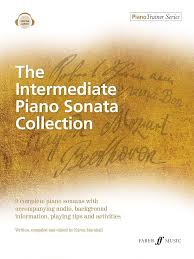 |
The Intermediate Piano Sonata Collection Piano Trainer Series 9 Complete Piano Sonatas |
| The Interpretation Of Piano Music (By Mary Venable) (1913) |
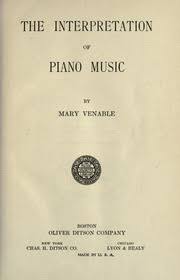 |
|
| The Jazz Revolution Twenties America And The Meaning Of Jazz By Kathy J. Ogren (Book) |
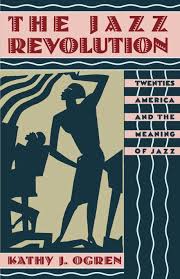 |
|
| The jazz style of John Coltrane – David N. Baker |
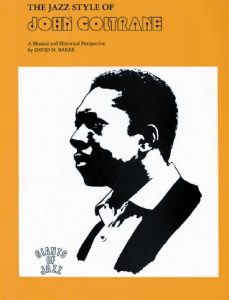 |
|
| The Jazz Tradition by Martin Williams (1993) |
 |
|
| The John Coltrane companion by Carl Woideck |
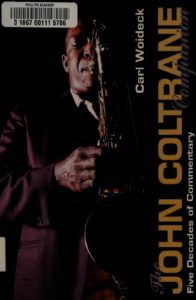 |
|
| The John Dunbar Theme – John Barry (Musescore File).mscz | ||
| The Joy Of Baroque Music |
 |
|
| The Joy Of Boogie And Blues |
 |
The Joy Of Boogie And Blues |
| The Joy Of Boogie And Blues Book 2 |
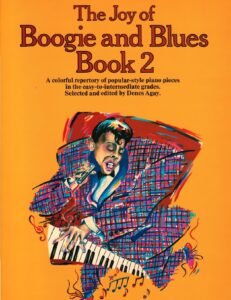 |
Boogie And Blues. Book 2 The Joy Of |
| The Joy Of Christmas – The Best loved Carols, Hymns, songs and solos |
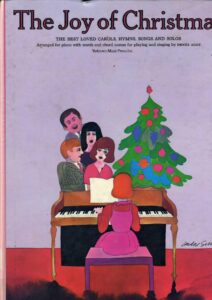 |
The Joy Of Christmas – The Best loved Carols, Hymns, songs and solos |
| The Joy Of Classics Collection Of Easy Classical Piano Pieces |
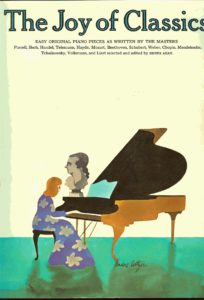 |
The Joy Of Classics Collection Of Easy Classical Piano Pieces |
| The Joy Of Disney – Easy Piano Songbook |
 |
The Joy Of Disney – Easy Piano Songbook |
| The Joy Of First Classics – Easy pieces – Easy Piano Songbook |
 |
The Joy Of First Classics – Easy pieces – Easy Piano Songbook |
| The Joy Of First Year Piano Music |
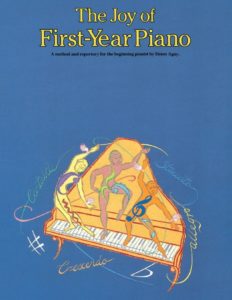 |
|
| The Joy of First-Year Piano by Denes Agay (Easy piano, piano facile) |
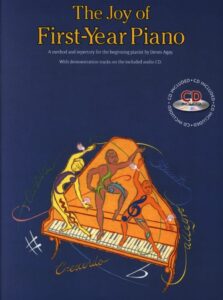 |
The Joy of First-Year Piano by Denes Agay (Easy piano, piano facile) |
| The Joy Of French Piano Music |
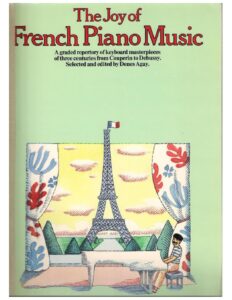 |
The Joy Of French Piano Music |
| The joy of George Gershwin |
 |
The joy of George Gershwin |
| The Joy Of Italian Melodies – Easy Piano Songbook |
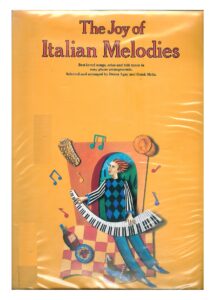 |
The Joy Of Italian Melodies – Easy Piano Songbook |
| The Joy Of Jazz (Easy to Medium Grade Piano Solos) |
 |
The joy of Jazz |
| The Joy Of Modern Blues |
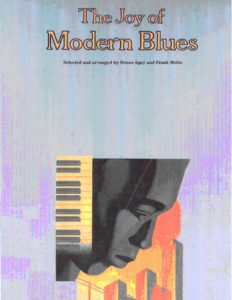 |
The Joy Of Modern Blues |
| The Joy Of Modern Piano Music (20th century classical music) |
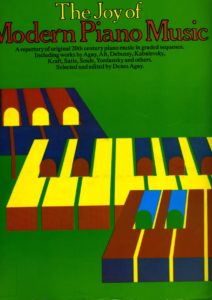 |
The Joy Of Modern Piano Music (20th century classical music) |
| The Joy Of More Classical Music |
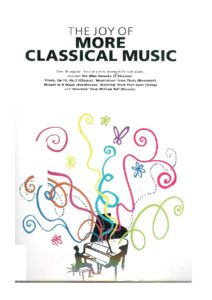 |
The Joy Of More Classical Music |
| The Joy of Music – Bernstein, Leonard 1918-1990 (Book) |
 |
|
| The Joy Of Piano Duets |
 |
The Joy Of Piano Duets |
| The Joy Of Piano Entertainment Piano Solo selected by Denes Agay |
 |
The Joy Of Piano Entertainment Piano Solo selected by Denes Agay |
| The Joy Of Pop Tunes – Easy Piano Songbook |
 |
The Joy Of Pop Tunes – Easy Piano Songbook |
| The Joy Of Recital Time Piano Solo selected by Denes Agay |
 |
The Joy Of Recital Time Piano Solo selected by Denes Agay |
| The Joy Of Russian Piano Music |
 |
The Joy Of Russian Piano Music Contents |
| The Joy Of Sonatinas – Easy Piano Songbook |
 |
The Joy Of Sonatinas – Easy Piano Songbook |
| The Killers – All These Things That I’ve Done Sheet Music | The Killers – All These Things That I’ve Done Sheet Music |

